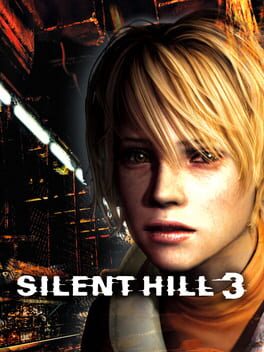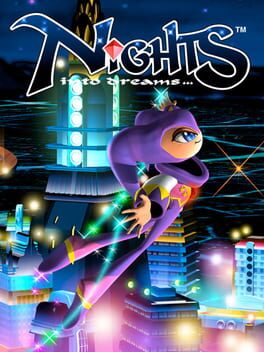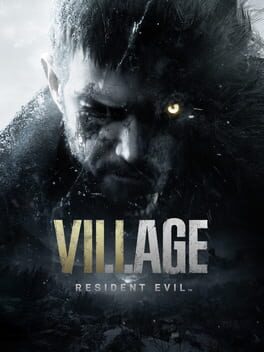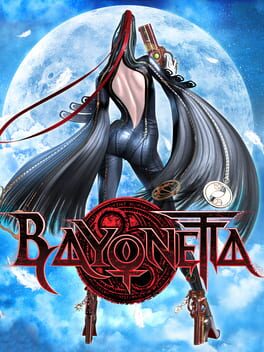moonpresnce
80 Reviews liked by moonpresnce
Silent Hill 3
2003
Now that the franchise is plagued with a bunch of Silent Hill 2 imitators, it's striking and quaint to see how quickly its direct sequel distanced itself from many of SH2's touted hallmarks that seemed like the success formula to exploit from then on. Silent Hill 3 doesn't waste much time with preambles, knowing already what you came here to see, and presents itself as the most predatory entry in the series, with highly aggressive and pursuing enemies, unlike the more passive and slow moving foes of SH1 and SH2, a very limited item and ammo count that forces you into a constant fight-or-flight response state that wasn't present in the series before, and more expansive and disorienting spaces to trudge through that more often than not have you staring into deep darkness as you scramble for a way out with monsters bitting at your heels.
Silent Hill 3 takes the unrelenting nature of the Historical Society stretch in SH2 and extends it into a full game. The Otherworld is ramped up even further as one of the most nightmarish settings every produced in videogames, filling it with bloody and rusty metal, grotesque disfigured monsters, dream-like disturbing visions, and disquieting noises that constantly make you feel like something is about to come out of the walls. The soundscape of SH3 might be Yamaoka's best work in the series, shifting the indiferent and somber tone of the previous entries into a much more hostile and invanding presence that assaults your ears constantly. Of the trilogy, SH3 is without a doubt the deliberately scariest one of the bunch, and bluntly makes its case as to not be fucked around it.
Which is why it's fascinating how much the main protagonist undercuts that vicious horror with her disinterested personality and musings on the whole ordeal. Beyond having a natural knack for making every interaction with the antagonists feel like a sitcom during cutscenes, Heather's charismatic remarks and quips during exploration create a certain detachment between her and the player's control, that wasn't as present in Harry's passive voyeurism or Jame's ambivalent resignation. SH3 puts tremendous effort in its oppression of the player, and yet Heather ain't having none of that shit. It's easy to understand why SH3 doesn't enjoy the same prestige and adoration that its prequel does, and I can't really blame people for that. SH2 interweaves both text and subtext so seamlessly that interpretation becomes highly accessible for anyone who experiences it, unlike SH3's more metatextual concepts that can easily be ignored if you just take the plot at face value.
But if your take away after playing the whole game, and witnessing Heather abort a God inside a church at the end, is that Silent Hill 3 disappointingly doesn't contain psychological horror and is just another devil cult story with little substance, then I'm afraid you missed the forest for the trees. There's an ever present underlying theme that permeates most of SH3 of imposed expectations of young women, that extends beyond its devil cult plot and impregnates with meaning the institutionalized settings of the game and its towering and stalking monsters that constantly harrass Heather. And having such an ubiquitous character push back the assaulting nature of SH3, mocking and making light of its villains, and in the process the Silent Hill concept itself, makes for a very refreshing and compelling subversion of what came before it.
We will never know what Silent Hill 3 could have been if it had gone the same route as Silent Hill 2. Hell, we will never know what it could have been if it had been a rail shooter, like intended. But this is the Silent Hill 3 we got, and I wouldn't have it any other way.
Silent Hill 3 takes the unrelenting nature of the Historical Society stretch in SH2 and extends it into a full game. The Otherworld is ramped up even further as one of the most nightmarish settings every produced in videogames, filling it with bloody and rusty metal, grotesque disfigured monsters, dream-like disturbing visions, and disquieting noises that constantly make you feel like something is about to come out of the walls. The soundscape of SH3 might be Yamaoka's best work in the series, shifting the indiferent and somber tone of the previous entries into a much more hostile and invanding presence that assaults your ears constantly. Of the trilogy, SH3 is without a doubt the deliberately scariest one of the bunch, and bluntly makes its case as to not be fucked around it.
Which is why it's fascinating how much the main protagonist undercuts that vicious horror with her disinterested personality and musings on the whole ordeal. Beyond having a natural knack for making every interaction with the antagonists feel like a sitcom during cutscenes, Heather's charismatic remarks and quips during exploration create a certain detachment between her and the player's control, that wasn't as present in Harry's passive voyeurism or Jame's ambivalent resignation. SH3 puts tremendous effort in its oppression of the player, and yet Heather ain't having none of that shit. It's easy to understand why SH3 doesn't enjoy the same prestige and adoration that its prequel does, and I can't really blame people for that. SH2 interweaves both text and subtext so seamlessly that interpretation becomes highly accessible for anyone who experiences it, unlike SH3's more metatextual concepts that can easily be ignored if you just take the plot at face value.
But if your take away after playing the whole game, and witnessing Heather abort a God inside a church at the end, is that Silent Hill 3 disappointingly doesn't contain psychological horror and is just another devil cult story with little substance, then I'm afraid you missed the forest for the trees. There's an ever present underlying theme that permeates most of SH3 of imposed expectations of young women, that extends beyond its devil cult plot and impregnates with meaning the institutionalized settings of the game and its towering and stalking monsters that constantly harrass Heather. And having such an ubiquitous character push back the assaulting nature of SH3, mocking and making light of its villains, and in the process the Silent Hill concept itself, makes for a very refreshing and compelling subversion of what came before it.
We will never know what Silent Hill 3 could have been if it had gone the same route as Silent Hill 2. Hell, we will never know what it could have been if it had been a rail shooter, like intended. But this is the Silent Hill 3 we got, and I wouldn't have it any other way.
Sonic Team's biggest weakness as a developer, by far, is the way they obfuscate the fun latent in their own experiences. We're too deep into the 'kinda amusing but far too bloated and unpolished for their own good' era of 3D Sonic to say that NiGHTS is their worst example of this, but it comes to mind when I think about what the most SONIC TEAM sonic team game is.
NiGHTS is often talked about more like it's an experiential title. It's themes, narrative, and music can make it feel like that, but it's actually a pretty tightly woven arcade game too. I'd argue that's where most of the substance lies and that the trippy visuals are a sort of window dressing.
According to interviews, the game came about after an extensive, experimental developmental period where the developers were emboldened to experiment with 3D technology. After 3-5 Sonic games in a row, depending on who you ask, everyone wanted to make something new. An extensive plan for a large scale platformer based on dreams was developed, but after extensive prototyping, the flying mechanic that they had intended for the end of the game as a big, climactic moment proved to be the only one that was any good. Whoops.
I think this shows a bit in the final version. Awkwardly shoehorned in platforming and an extremely frontloaded story that might disincentivize further replays by mistake are the big offenders here, but these flaws are turned into double edged swords by excellent decision making on the part of the leadership. The awkward 3D controls are relegated strictly to a punishment for poor control of NiGHTS and the story, while brief and light, has enough thematic heft to stick with you. Maybe it'll stick so well that you'll try the game again even after a rough first playthrough.
The flying is pure, freeform fun once you get the hang of it, but it's like nothing else released before it or since, so it's a very confusing concept to try to come to grips with in a short amount of time.
This is going to sound like I'm bullshitting you, but I really do think NiGHTS's un-evenness doubles as a strength. It feels truly like a fragmented stream of consciousness that succeeds at feeling as surreal mechanically as it is aesthetically. There are a lot of games about dreams, but they're usually a visual element supplementing bog standard gameplay. Despite NiGHTS's display of what makes a satisfying arcade game, it can't be nailed down to many existing genres or gameplay loops, especially now. It FEELS like the type of out of body experience you'd have in a dream, and the way it shies away from explaining it's core concepts and lore work to instill this feeling too.
It also helps that there's a pretty kickass arcade game under the hood if you're willing to take that rank system seriously. Let me give you a tip: Instead of turning those orbs on your first go around through the level, pass the goal and go back around again. See how many orbs and chains you can squeeze out of a single loop. All of a sudden, the game design clicks into place and you're playing an exhilarating action game with a tight arcade loop in line with the best Sonic entries.
NiGHTS is definitely an acquired taste, but lean into it's absurdity and you'll be entranced. It's a genuinely great game with an uplifting meta-narrative, top notch visuals, and the best soundtrack out of Sonic Team's legendary discography.
Some dreams feel like they're over in a few minutes, and others can feel like a lifetime. I encourage you to take advantage of the fact that this one only ends when you let it.
NiGHTS is often talked about more like it's an experiential title. It's themes, narrative, and music can make it feel like that, but it's actually a pretty tightly woven arcade game too. I'd argue that's where most of the substance lies and that the trippy visuals are a sort of window dressing.
According to interviews, the game came about after an extensive, experimental developmental period where the developers were emboldened to experiment with 3D technology. After 3-5 Sonic games in a row, depending on who you ask, everyone wanted to make something new. An extensive plan for a large scale platformer based on dreams was developed, but after extensive prototyping, the flying mechanic that they had intended for the end of the game as a big, climactic moment proved to be the only one that was any good. Whoops.
I think this shows a bit in the final version. Awkwardly shoehorned in platforming and an extremely frontloaded story that might disincentivize further replays by mistake are the big offenders here, but these flaws are turned into double edged swords by excellent decision making on the part of the leadership. The awkward 3D controls are relegated strictly to a punishment for poor control of NiGHTS and the story, while brief and light, has enough thematic heft to stick with you. Maybe it'll stick so well that you'll try the game again even after a rough first playthrough.
The flying is pure, freeform fun once you get the hang of it, but it's like nothing else released before it or since, so it's a very confusing concept to try to come to grips with in a short amount of time.
This is going to sound like I'm bullshitting you, but I really do think NiGHTS's un-evenness doubles as a strength. It feels truly like a fragmented stream of consciousness that succeeds at feeling as surreal mechanically as it is aesthetically. There are a lot of games about dreams, but they're usually a visual element supplementing bog standard gameplay. Despite NiGHTS's display of what makes a satisfying arcade game, it can't be nailed down to many existing genres or gameplay loops, especially now. It FEELS like the type of out of body experience you'd have in a dream, and the way it shies away from explaining it's core concepts and lore work to instill this feeling too.
It also helps that there's a pretty kickass arcade game under the hood if you're willing to take that rank system seriously. Let me give you a tip: Instead of turning those orbs on your first go around through the level, pass the goal and go back around again. See how many orbs and chains you can squeeze out of a single loop. All of a sudden, the game design clicks into place and you're playing an exhilarating action game with a tight arcade loop in line with the best Sonic entries.
NiGHTS is definitely an acquired taste, but lean into it's absurdity and you'll be entranced. It's a genuinely great game with an uplifting meta-narrative, top notch visuals, and the best soundtrack out of Sonic Team's legendary discography.
Some dreams feel like they're over in a few minutes, and others can feel like a lifetime. I encourage you to take advantage of the fact that this one only ends when you let it.
Resident Evil 4
2005
RE4 is a game designer’s wet dream. If you really break it down, all Leon can do is point and shoot; and that simplicity is part of how it immediately gets you into this mode of consciously analyzing situations and being intentional about everything you do. Corralling enemies into a single spot and headshot-ing one of them to set the whole group up for a juicy roundhouse kick seems so basic, but having to actively look for ways to achieve that scenario never stops being engaging.
All the different weapons, the upgrade system, enemy types, random loot drops: they add to the basic formula in a way that’s so elegant and immediate that it makes every modern action RPG looter shooter whatever the fuck hybrid look like a dry, convoluted Excel spreadsheet by comparison. It’s so no-nonsense that I honestly struggle to come up with more ways to explain why it’s so good that aren't insanely obvious. RE4 is endlessly polished and pure and exciting and one of the most perfect games of all time.
All the different weapons, the upgrade system, enemy types, random loot drops: they add to the basic formula in a way that’s so elegant and immediate that it makes every modern action RPG looter shooter whatever the fuck hybrid look like a dry, convoluted Excel spreadsheet by comparison. It’s so no-nonsense that I honestly struggle to come up with more ways to explain why it’s so good that aren't insanely obvious. RE4 is endlessly polished and pure and exciting and one of the most perfect games of all time.
Bayonetta
2009
Bayonetta has been my number one favorite game pretty much since I first played it back in 2010, but when I had that initial realization I’d honestly barely even scratched its surface. To this day I’m still finding new ways to play and improve my strats, which speaks to just how hard it nails that sweetspot between mechanics that are intrinsically satisfying, malleable, but also highly intentional; somehow it’s the one action game that does everything. The control system is so smooth and flexible it’s influenced every genre title since; knocking dudes into each other or tearing through the battlefield with Beast Within offers a sense of physicality other comparable games still don’t come close to; the enemies are some of the most aggressive, varied and polished you’ll ever encounter in a melee combat game; and all of that is wrapped up in a scoring system that miraculously manages to give you clear rules to work with while still allowing for a huge degree of expression. Even the ridiculous Angel Weapons make sense from that perspective — they give you a generous buffer to use whatever playstyle appeals to you in and still earn a Platinum combo in the end.
Between Witch Time, the equipment system and Dodge Offset, Bayonetta makes it easy to name-drop its most obvious gimmicks and leave it there, but those last two in particular are an insane step up for the genre when it comes to freedom and intentionality. How to trip an enemy up, where to launch them, whether to use magic or not: no other action game makes you consider these questions so actively at this fast of a pace, and I can’t get enough of it.
Between Witch Time, the equipment system and Dodge Offset, Bayonetta makes it easy to name-drop its most obvious gimmicks and leave it there, but those last two in particular are an insane step up for the genre when it comes to freedom and intentionality. How to trip an enemy up, where to launch them, whether to use magic or not: no other action game makes you consider these questions so actively at this fast of a pace, and I can’t get enough of it.




